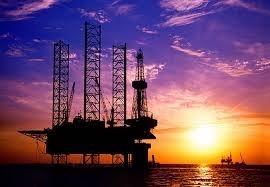Co-authored by William Witenberg a contemporary artist focused on abstract painting
As the price of oil crumbles, declining over 25% since June, the consequences on the Russian economy have been drastic. What American and European sanctions (brought as a result of the annexation of Crimea) and the Ukraine crisis failed to do to the Russian economy, the declining price of oil has done. While the ruble weakened as a result of the tensions with the west, it fell in excess of 10 percent at the end of last week due to the oil price decline. However, any decline in the ruble helps to offset the decline in the price of oil. Russia sells oil for dollars and then converts into ruble. The lower the value of ruble against dollar the more rubles one gets for less oil.
It is estimated that more than half of Russia's annual budget revenue comes from oil and gas. The economy is so dependent on oil revenue that many have predicted that Russia will begin to experience a recession within 2-4 years. Bank of America forecasts a 1.5% decrease in the economy during the coming year.
It would be a mistake to think that Putin will change his behavior in Ukraine as a result of declining oil prices. Putin's popularity is rooted in nationalism, not economics. The local view, that he is standing up to the west, will be reinforced by his response to the oil crisis. In fact, Putin recently said, "at some moments of crisis it starts to feel like it is the politics that prevails in the pricing of energy resources," suggesting that countries are lowering the price of crude for non-economic reasons. Ironically, the decline in oil and the resulting hardships for the Russian economy could serve to unite the country in its time of trouble. One measure of Putin's popularity in Russia can be shown by how little impact sanctions and oil price fluctuations have had on his popularity or his policies in Ukraine.
The declining price of oil has brought Russia and China closer together. Russia needs to sell more oil to maintain the same revenues. First came the announcement of a $400 billion Russian-Chinese deal to construct the Power Of Siberia Pipeline. Last week in advance of the Asia Pacific Economic Conference (APEC) Putin announced another mega deal with China, where Russia will sell 30 billion cubic meters of gas to Western China delivered via Altai pipeline. These two deals will make China, Russia's largest customer, replacing Germany.
It is interesting, that despite the negative consequences of a lower oil price on Russian economy, there are many positive effects. New oil prices underline the significance of a closer economic relationship between Russia and China, they do not change any policies in the growing "cold war" with the west, and likely to increase Putin's popularity, as Russians rally around his view, that Western political agendas are responsible for the countries' economic hardships.
